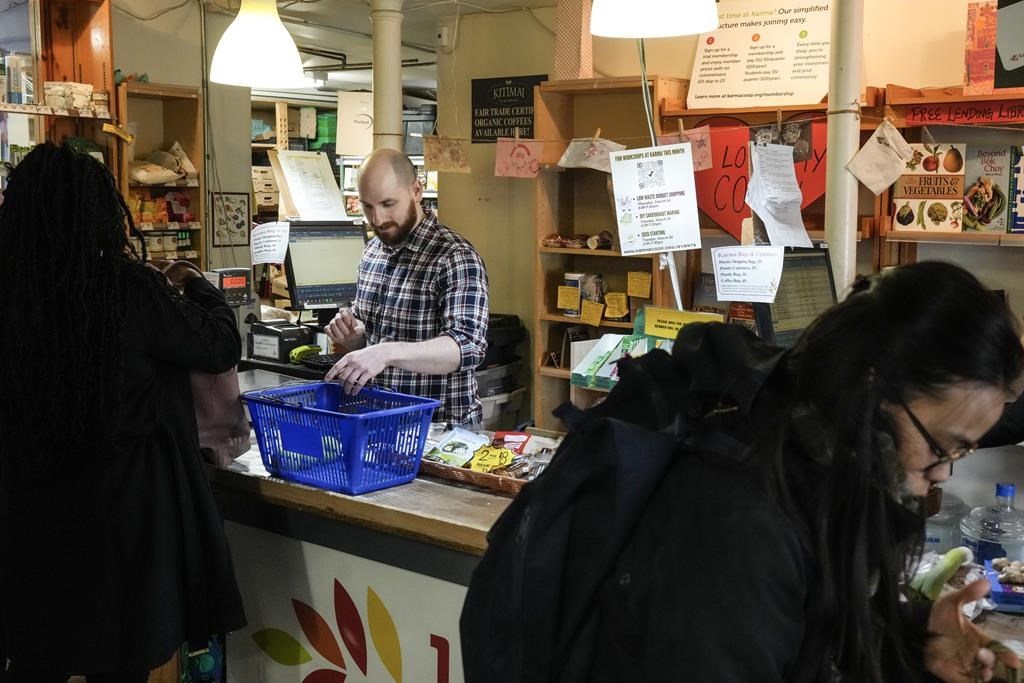The boycott of Loblaw stores in Canada is underway and while it may not have a big impact on the company’s bottom line, smaller grocers, co-ops and other businesses say they’re seeing a boost.

For Gateway Meat Market in Nova Scotia, that has meant longer lines — sometimes out the door — drilling home why their recently approved expansion was important.
Co-owner Tamara Selig told Global News amid inflation and food insecurity, the lines have extended out to the parking lot. And as calls mounted for the boycott movement against the retail giant, they’ve been hearing the anger customers are feeling.
“Definitely, the whole mentality of being able to afford groceries right now is a very sad one,” she said. “It’s causing a lot of anger and it’s really nice to see the different look on their faces when they walk in our store.”
Selig said the store runs on a “very low-profit margin” while selling a large volume, bringing in many tractor-trailer loads every day and week with no distribution centre.
It’s why, she said, they’re able to offer items like organic strawberries for $0.97 a pound. By comparison, a pound of strawberries at Atlantic Superstore in Halifax, owned by Loblaw, can often cost $5.99 or more.
The lower cost is attracting customers from outside the province.

“As long as they’re able to stock up and get a good supply, they’re more than willing to drive hours to get to us and are coming even from out of province at this point,” she said.

Get breaking National news
Karma Co-op in Toronto is another grocer seeing a boost due to the boycott, with some of it coming from online discussion.
“The primary way folks hear about us is our members talking about what we’re doing,” Karma general manager Zacharie Weingarten said. “The Loblaw boycott definitely has people talking. I get the pings every time someone mentions us on Facebook and we’re popping up in all these different threads.”
Karma is a nonprofit grocery store owned by people who shop there. Non-owners can, but they’re encouraged to become members and vote on how things are run.
Like Gateway, they also have no distribution centre and focus on local organic, fair trade and zero-waste products, meaning there is a connection with the suppliers and farmers that sell to them.
Weingarten notes they even do samplings.
“People are craving community right now, and that’s something they can really find at Karma that separates us from a conventional grocery store,” he said.

That connection can be important for many Canadians, said Regina grower Ian Pasloski. As a son of farmers, he says he’s seen that knowing where food comes from can help people choose their food.
Pasloski started growing and selling micro greens — small, edible plants from the seeds of various vegetables like radishes — out of his Regina home and has customers for his business, I.G. Fresh, from all over the city now.
“They’re just looking for that connection to their food, just getting better quality,” he said. “When you know your farmer and you know that they take pride and care in growing that produce for you.”
While the Loblaw boycott may not make much impact on the corporate giant, small store owners and producers say there are encouraging signs Canadians are ready to think outside the big box store when heading out for groceries.





Comments